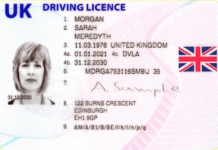Toyota (GB) is spending more than £1 million to covertly mark more than 100,000 parts on older cars which could be the target of catalytic converter theft, to help police arrest and charge criminals. The service is free to owners.
The theft of catalytic converters has grown hugely in recent years thanks to the significant rise in the price of some precious metals inside the devices, which are used to clean exhaust gases and reduce pollution.
Many manufacturers are affected by what police call “a co-ordinated, organised crime linked to other serious forms of offending”.
Toyota is working with police and Smartwater, which manufactures police-approved marking kits, to provide an initial batch of 50,000 kits. The markings, which are invisible, mean a stolen catalytic converter can be traced to a specific crime, helping police in their attempts to fight the organised gangs responsible. It also raises the risk to all those handling the devices along the criminal chain, from theft to eventual disposal and recycling.
In the case of Toyota and Lexus (part of the Toyota company) vehicles, thieves are targeting older hybrid models because the catalyst in a hybrid has a lower work load than in a non-electrified vehicle, meaning it is in better condition.
In more modern Toyota and Lexus cars the catalysts are of a different design and are not typically targets for theft as a result.
Toyota is offering the Smartwater marking free to all Toyota and Lexus owners, who simply need to call their local Toyota or Lexus retailer to arrange a visit.
Because thieves are predominantly targeting older models this presents a challenge for Toyota in contacting owners of cars which may no longer be regularly seen by our retail network.
To help with this Toyota has issued 20,000 Smartwater kits to police to support their local anti-catalyst theft initiatives. The company is also working with the AA, Toyota’s road-side partner, so its patrols can point customers to where they can get a free kit.
Rob Giles, Toyota (GB) Director of Customer Services, said: “Catalytic converter theft is a very serious problem in the UK and the effects on victims of this crime are emotional as well as financial. We’re pleased to be starting this initiative, working closely with the police, not only to help them with their efforts to combat this crime but also to send a clear message to criminals that if they choose to target a Toyota or Lexus car there is now a far higher chance of getting caught.”
Toyota also hopes that the marking programme will dissuade rogue scrap metal dealers who are happy to pay cash for stolen converters, now that the risk of being caught is greater than ever before.
Giles added: “We know from our work with police and others that the solution to this crime is not only arresting those doing the stealing, but also making life harder for those buying the stolen goods. We hope this will help in that.”
Toyota has also restarted production lines in Japan and France that made catalysts for many of the older models targeted in order to supply affected owners, developed a Catloc security device which helps deter theft (and has been granted a “Sold Secure with Gold Status” security ranking) and ensured it makes no profit at all from the sale of replacement catalysts or from Catlocs, providing them at cost.
The precious metals inside catalysts are recycled and illegally sold by the end user in the crime, often abroad.
Help keep news FREE for our readers
Supporting your local community newspaper/online news outlet is crucial now more than ever. If you believe in independent journalism, then consider making a valuable contribution by making a one-time or monthly donation. We operate in rural areas where providing unbiased news can be challenging. Read More About Supporting The West Wales Chronicle
























